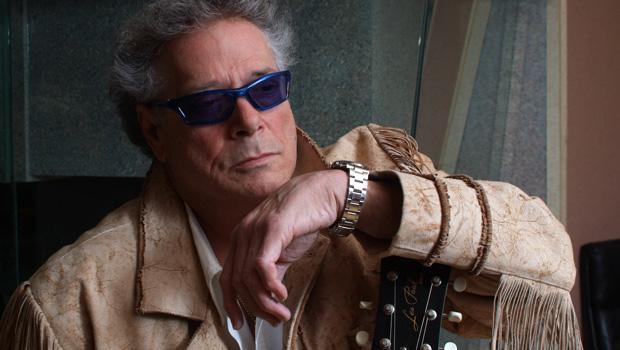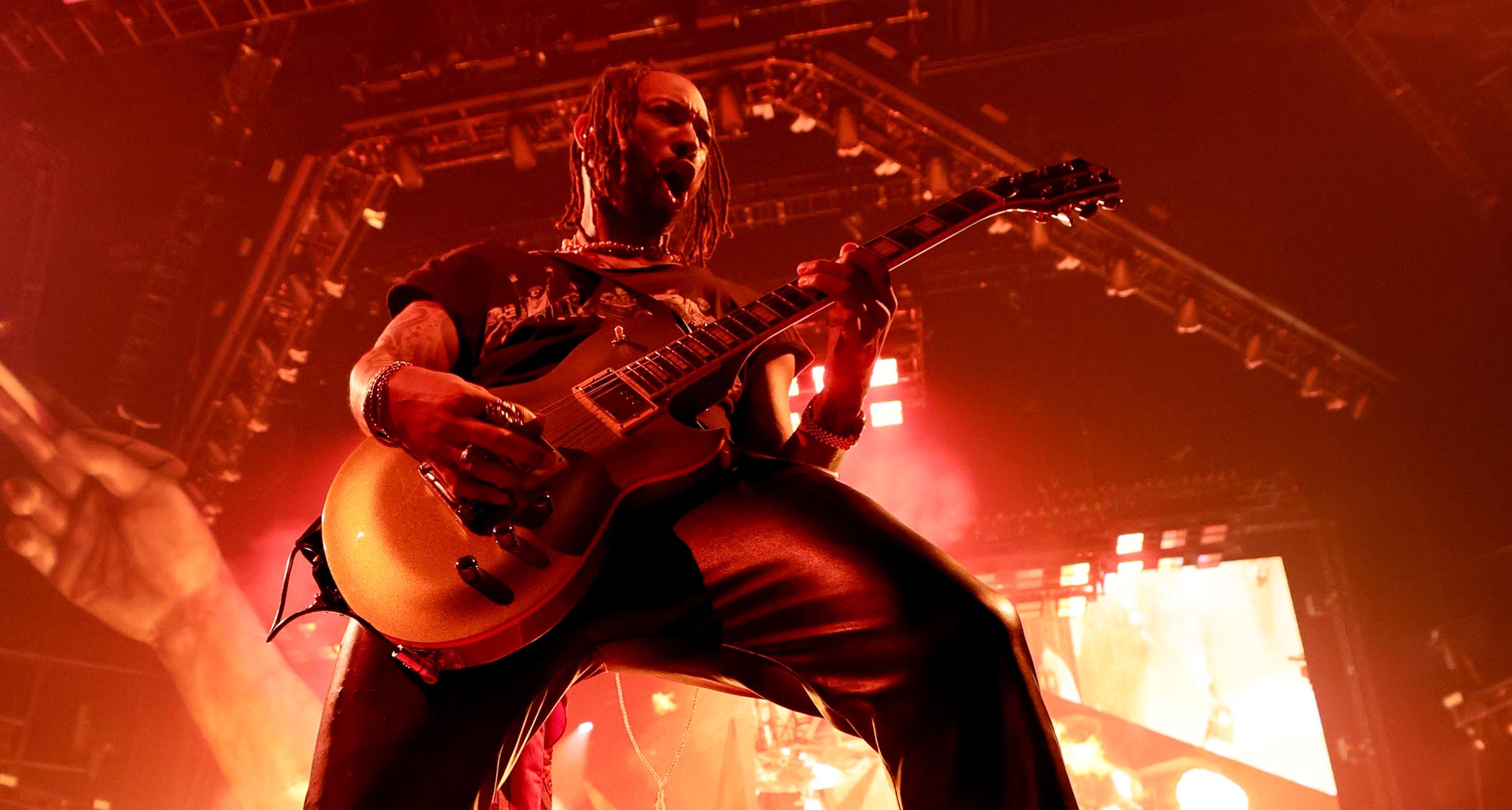Interview: Leslie West Discusses Tone, Offers Advice, Answers Readers' Questions
All the latest guitar news, interviews, lessons, reviews, deals and more, direct to your inbox!
You are now subscribed
Your newsletter sign-up was successful

Here's the third and final segment of my recent interview with Leslie West.
You can check out part one right here and part two right here.
GUITAR WORLD: Do you have any new favorite guitar players?
Yeah, if you understand this as being a new favorite, even though I’ve known about him for a while. It's Joe Bonamassa.
Ozzy Osbourne guested on Mountain's Masters of War album in 2007. How did that come to be?
I helped on his version of “Mississippi Queen,” and I had asked him, I said, “I'd love you to sing on one of these Dylan songs we're going to do." At the time, Sony didn't want him singing any more cover songs because he had just done a whole record of covers, so it went back and forth. He didn't have a problem with it; the label did. So I sent him “Masters of War,” and they said he could sing two verses. I picked out two verses and sent it to him, and it sounds like we were in the room together, but it wasn’t. He was at his studio.
I've always heard you were one of Randy Rhoads' favorite guitar players. Did you ever get to meet him or jam with him?
All the latest guitar news, interviews, lessons, reviews, deals and more, direct to your inbox!
We were on tour with them, and that's where I met Randy and Sharon and we all became friends. All of a sudden, he was gone too quick. I used to think he was prettier than most girls. He played really well; he played a lot of classical lines, and I seem to gravitate toward that, so we hit it off.
What do you think guitar players can walk away learning from your music? What advice would you give?
The first thing would be, tune up. I hear a lot of guys who can shred and play fast, but they are out of tune. And it's hard for me to listen to someone that sounds out of tune. That is so important, and you know I can tell in two seconds. It's so important. And I wish I could tune my guitars. I have somebody who tunes my guitars for me. I'm not really good at doing that, but I can tell when they're not. If you practice, you know, I don't really play fast. It's like guitar: You don't have to play fast.
If you ever watch an Alfred Hitchcock movie, when you hear the music really loud and then all of a sudden it stops, and there's a big hole of nothing -- and that hole sounds louder than if the whole orchestra was playing right through it. So when you play or when I play, anyway, I like to leave space in between my phrases and my licks and so on and so forth.
Here's a question from Chris in Boston: You have one of the most recognizable tones in all of rock. Can you give us any amp dialings or playing tips for guitarists looking for a similar sound?
First, I use the one-pickup guitar, and I try to get the most out of the one-pickup guitar. And when you play a little slower, like I play, you give the notes a chance to use the sound that comes out of an amp. Because the sound of the amp really is movement of air. And I work on the tone a lot. I use full bass on the amp and have the treble set to 5, and I put the mid-range on maybe 2 or 3. Then it's actually the attack of my right hand on whether I want soft or loud, but I play pretty much with my finger on the volume control, rolling it off the back and I’m really happy with it. I really do work on the tone.
From Seitu in Burlington, Mass.: Do you remember what gear you used to get the tones on "Mississippi Queen" and that whole album?
It was a Les Paul Junior, and I was using a Sun Coliseum 100-watt PA head. It had four mic inputs and a master volume. I got them by accident, and I really didn't want them. I was hoping to get Marshalls. At Mountain’s first gig out in San Francisco at the Fillmore, these Suns showed up, and I said, "What am I going to do with this? This is a PA, you know?" There were 4 X 12's in the cabinets into two heads, and I said shit. The Who used it as a PA system. They were like guitar speakers, and it also came with this air-conditioning unit. I guess that was for the highs, the tweeters. I just used the head and the cabinet by plugging the guitar into the mic input, which is the only choice I had. We had to play that night for the first time. I turned it up and got a nice tone out of it and then I turned the master up and I said, “Wow this sounds great,” and it became my amp. Then Sun fucked it up and tried to make a guitar amp. Al they had to do was put the guts of that PA into a box, but they changed it all around.
Keep it simple, right?
Yeah, accidents. There are good accidents and bad accidents. That was a good one.
Do you have any advice for young musicians who want to make it?
Yeah (laughs). If I was starting now, I wouldn’t start. Now it's really difficult. Besides having this app for iPad and iPod, the Leslie West string bender, which is sort of like Guitar Hero, but you can bend the two notes together. I tried to do something a little bit different. That's not going to teach you how to play the guitar, though. It's a game. Guitar Hero teaches you songs, which is great. That's the best part of it. Young kids are listening to our music that would have never had an opportunity to listen to us.
But starting out now, it’s really a tough road. But if you want it bad enough, I guess you go out and get it. And if somebody tells you, “You suck," maybe you do, but don't listen to them.
